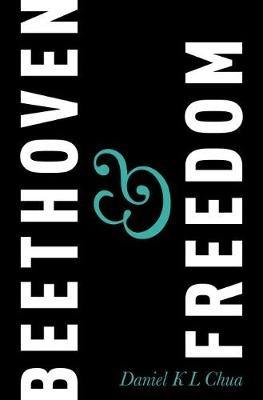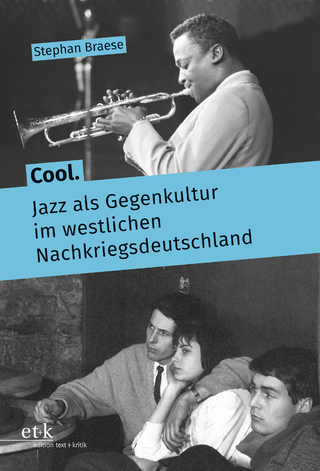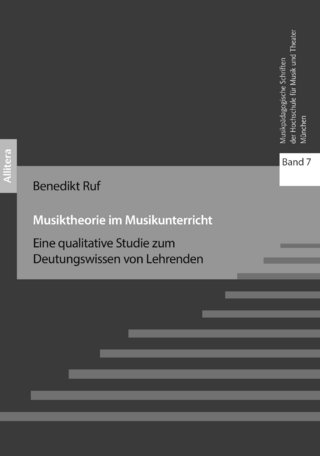
Beethoven & Freedom
Seiten
2017
Oxford University Press Inc (Verlag)
978-0-19-976932-2 (ISBN)
Oxford University Press Inc (Verlag)
978-0-19-976932-2 (ISBN)
Over the last two hundred years, Beethoven's music has been synonymous with modernity's 'absolute' value-freedom. Author Daniel KL Chua explores how Beethoven's music engages with freedom's aspirations and dilemmas, challenging the current image of Beethoven, and suggesting an alterior freedom that can speak ethically to the twenty-first century.
Over the last two centuries, Beethoven's music has been synonymous with the idea of freedom, in particular a freedom embodied in the heroic figure of Prometheus. This image arises from a relatively small circle of heroic works from the composer's middle period, most notably the Eroica Symphony. However, the freedom associated with the Promethean hero has also come under considerably critique by philosophers, theologians and political theorists; its promise of autonomy easily inverts into various forms of authoritarianism, and the sovereign will it champions is not merely a liberating force but a discriminatory one. Beethoven's freedom, then, appears to be increasingly problematic; yet his music is still employed today to mark political events from the fall of the Berlin Wall to the attacks of 9/11. Even more problematic, perhaps, is the fact that this freedom has shaped the reception of Beethoven music to such an extent that we forget that there is another kind of music in his oeuvre that is not heroic, a music that opens the possibility of a freedom yet to be articulated or defined.
By exploring the musical philosophy of Theodor W. Adorno through a wide range of the composer's music, Beethoven and Freedom arrives at a markedly different vision of freedom. Author Daniel KL Chua suggests that a more human and fragile concept of freedom can be found in the music that has less to do with the autonomy of the will and its stoical corollary than with questions of human relation, donation, and a yielding to radical alterity. Chua's work makes a major and controversial statement by challenging the current image of Beethoven, and by suggesting an alterior freedom that can speak ethically to the twenty-first century.
Over the last two centuries, Beethoven's music has been synonymous with the idea of freedom, in particular a freedom embodied in the heroic figure of Prometheus. This image arises from a relatively small circle of heroic works from the composer's middle period, most notably the Eroica Symphony. However, the freedom associated with the Promethean hero has also come under considerably critique by philosophers, theologians and political theorists; its promise of autonomy easily inverts into various forms of authoritarianism, and the sovereign will it champions is not merely a liberating force but a discriminatory one. Beethoven's freedom, then, appears to be increasingly problematic; yet his music is still employed today to mark political events from the fall of the Berlin Wall to the attacks of 9/11. Even more problematic, perhaps, is the fact that this freedom has shaped the reception of Beethoven music to such an extent that we forget that there is another kind of music in his oeuvre that is not heroic, a music that opens the possibility of a freedom yet to be articulated or defined.
By exploring the musical philosophy of Theodor W. Adorno through a wide range of the composer's music, Beethoven and Freedom arrives at a markedly different vision of freedom. Author Daniel KL Chua suggests that a more human and fragile concept of freedom can be found in the music that has less to do with the autonomy of the will and its stoical corollary than with questions of human relation, donation, and a yielding to radical alterity. Chua's work makes a major and controversial statement by challenging the current image of Beethoven, and by suggesting an alterior freedom that can speak ethically to the twenty-first century.
Daniel KL Chua is currently professor of music at the University of Hong Kong. Before joining Hong Kong University to head the School of Humanities, he was a fellow and the Director of Studies at St. John's College, Cambridge, and later Professor of Music Theory and Analysis at King's College London. He was a Henry Fellow at Harvard University and is the recipient of the 2004 Royal Musical Association's Dent Medal. He is the President of the International Musicological Society.
| Erscheinungsdatum | 23.06.2017 |
|---|---|
| Verlagsort | New York |
| Sprache | englisch |
| Maße | 239 x 155 mm |
| Gewicht | 522 g |
| Themenwelt | Kunst / Musik / Theater ► Musik ► Musiktheorie / Musiklehre |
| ISBN-10 | 0-19-976932-X / 019976932X |
| ISBN-13 | 978-0-19-976932-2 / 9780199769322 |
| Zustand | Neuware |
| Haben Sie eine Frage zum Produkt? |
Mehr entdecken
aus dem Bereich
aus dem Bereich
Grundbegriffe, Harmonik, Formen, Instrumente
Buch | Softcover (2021)
Philipp Reclam (Verlag)
7,80 €
Jazz als Gegenkultur im westlichen Nachkriegsdeutschland
Buch | Hardcover (2024)
edition text + kritik (Verlag)
42,00 €
eine qualitative Studie zum Deutungswissen von Lehrenden
Buch | Softcover (2024)
Allitera Verlag
36,00 €


